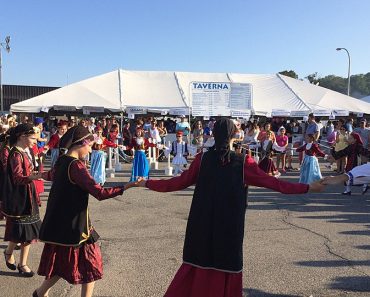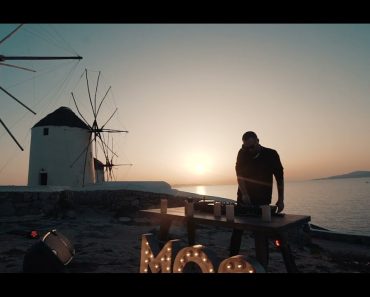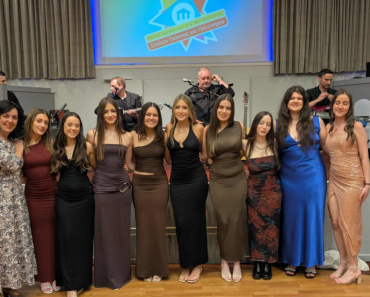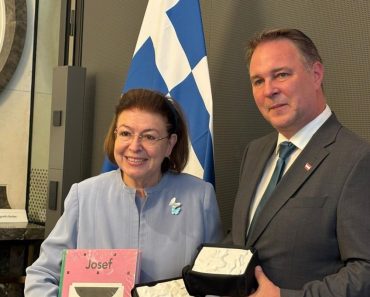
Russia, barred from the Eurovision Song Contest since the 2022 invasion of Ukraine, will stage its own Intervision music contest on Saturday. The Kremlin-backed event revives a Soviet-era name and is billed as a showcase for what officials describe as “traditional family values.”
Global lineup spans more than half the world
Singers from 23 countries, including China, India, and Brazil, are set to perform. Organizers say the combined population of participating nations represents more than half of the world’s population. Contestants will compete for a prize of 30 million rubles, about $360,000.
JUST IN: Russia revives the Intervision Song Contest, its own version of Eurovision after being excluded. Unusually, the U.S. will participate alongside China, Cuba, and other “friendly” countries in what Moscow calls a platform for cultural and humanitarian ties pic.twitter.com/sQIg6A1Eus
— GeoInsider (@InsiderGeo) September 20, 2025
Serbia is the only nation taking part in both Eurovision and Intervision. The United States was set to be represented by Greek-Australian singer Vassy (Vasiliki Karagiorgos), who had replaced U.S. R&B artist Brandon Howard after his last-minute withdrawal for family reasons, but Vassy later also withdrew.
📢 Official statement:
Due to political pressure from the Australian government, US-AU citizen VASSY won’t perform in the #Intervision25 final.
The US remains in the contest, represented on the jury by a Deep Purple legend.
Intervision stands for culture, not politics.— Intervision 2025 (@intervisionwld) September 20, 2025
Performances can be delivered in any language. Unlike Eurovision, where viewers vote, the Intervision winner will be chosen by a professional jury with representatives from each country.
Contest to air in Russia and abroad
The contest will air live on Russian state television. Organizers claim it will also be available online or through foreign broadcasters, with a potential reach of more than 4 billion people. They have not named which networks outside Russia plan to carry the show.
Международный музыкальный конкурс “Интервидение” стартовал на Live Арене.
“Евровидение” нервно курит в сторонке. pic.twitter.com/yqw9HHiEoV
— Советский, злой, твой (@ussrlife) September 20, 2025
The competition borrows its name from a Soviet-era music festival once staged for Eastern European allies. The new edition will feature performers from countries Moscow considers friendly, including Belarus, Cuba, Qatar, Saudi Arabia, South Africa, the United Arab Emirates, and Venezuela.
Kremlin positions contest as cultural alternative
President Vladimir Putin ordered the creation of the contest earlier this year, appointing a top aide to head its supervisory board. Ukrainian officials have denounced it as “an instrument of hostile propaganda.”
Foreign Minister Sergei Lavrov told reporters before the event that Russia had not banned citizens from watching Eurovision. However, he stated that Moscow sought to offer “alternative approaches to preserving traditions and national cultures, as well as religious, spiritual and moral constructs that we have inherited from our ancestors.”
#Intervision, the Soviet-era rival to Eurovision, is making a comeback this weekend. Russia is staging a grand final and there are 23 countries set to take part – from China, India, the US (more below) to Madagascar and Serbia – in a TV spectacle oozing with AR and AI. pic.twitter.com/D0BBhTTUWK
— Ben Tavener (@BBCBenTavener) September 17, 2025
Lavrov added that organizers would welcome international attention. “But we do not dispute the right of the jury or Eurovision viewers to vote for a bearded man in a dress,” he said, a pointed reference to Austrian drag performer Conchita Wurst, who won Eurovision in 2014.
Strict laws shape the cultural backdrop
The event also underscores Russia’s restrictive stance on LGBT rights. The country enforces laws against actions deemed to promote homosexuality and has branded the “international LGBT public movement” as an extremist organization.
Russia fields Shaman as its entry
Russia competed in Eurovision 23 times from 1994 and won once, in 2008, with Dima Bilan’s song “Believe.”
For Intervision, Moscow will be represented by Yaroslav Dronov, known by his stage name Shaman. He will perform “Straight to the Heart” in Russian. Dronov, who once simulated a nuclear blast during a concert, has risen to prominence with patriotic anthems such as “I Am Russian,” making him a fixture on state television.







